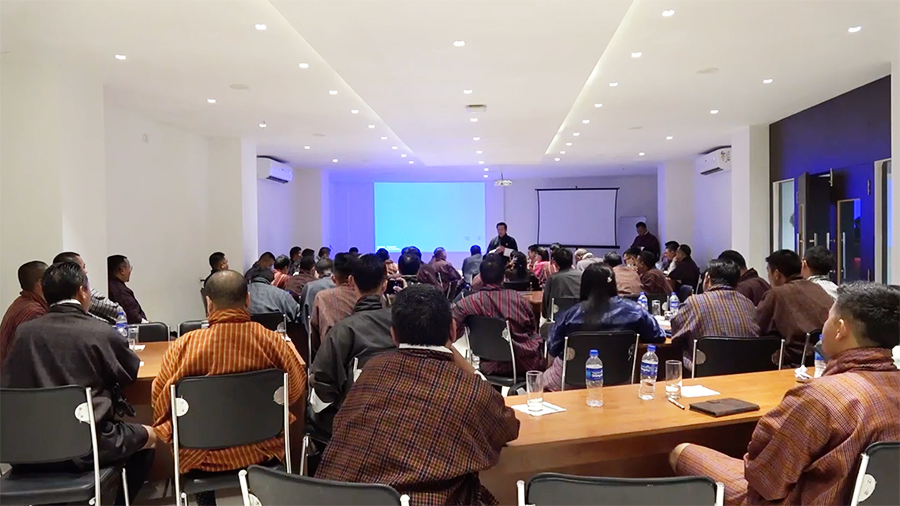
Sanitation and hygiene in healthcare centres have seen significant improvements nationwide in recent years according to local leaders and health officials. They attribute this to the introduction of the Water and Sanitation for Health Facility Improvement Tool or the WASH FIT programme. However, they are now calling for more inclusive facilities to better accommodate persons with disabilities, the elderly and children.
Local leaders and health officials from across the country were brought together at the National WASH in Healthcare Facilities Learning Event, held in Phuentshogling last week.
They discussed the challenges and successes of the WASH FIT programme which they are a part of.
While participants acknowledged significant improvements in sanitation and hygiene, they emphasised the urgent need to make facilities more inclusive.
“I feel that until now, we did not consider much about hygiene and sanitation for persons living with disabilities. So, from here on, there is the need to consider everyone while planning activities or projects,” said Toedtsho Gup Dechen Wangdi.
Dagala Gup Gado said, “We have been told about the importance of focusing on inclusivity. So, we will talk with other gups in our district and work on developing disability-friendly infrastructures.”
“We have made it necessary to have separate toilets for male and female. If it is not there, their ratings will be affected. We have also emphasised the need to have toilets that can be used by persons with disabilities, the elderly and children,” said Tashi Dorji, WASH Advisor, SNV Bhutan.
The health ministry in partnership with SNV Bhutan organised the event.
The programme, aimed at strengthening and institutionalising WASH FIT for a sustainable health care system is considered to be the first of its kind where stakeholders from all the districts took part.
Kinley Dem, Phuentshogling
Edited by Sangay Chezom








